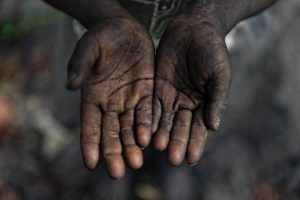Child Labor
Article 11(3) of the 1973 Constitution of Pakistan says, “No child under the age of fourteen years shall be engaged in any factory or mine or any other hazardous employment. Additionally, Article 37 of the Constitution elaborates further on the protective measures related to child rights.
Child labor is widespread in some of the world’s most underprivileged nations. According to Global Slavery Index, Pakistan ranks number three in the world with the highest number of Child Labor. As per the Employment of Children Act 1991 and the Constitution of Pakistan, the term “child” pertains to an individual who has not yet reached 14 years of age, while an “adolescent” is defined as someone below 18. As per UNICEF, an estimated 3.3 million children in Pakistan are subjected to child labor, depriving them of their childhood, education, and health; leading to a future of destitution and impoverishment.
The Pakistani government has officially approved the International Labor Organization’s fundamental Conventions concerning child labor, including the Minimum Age Convention of 1973 and the Worst Forms of Child Labor Convention of 1999. The International Labor Organization (ILO) has been offering technical support to the Government of Pakistan and the Employers’ and Workers’ organizations as part of the Pakistan Decent Work Country Program (2016-20). In addition, the International Labor Organization (ILO) has collaborated with the Ministry of Education to ensure that the National Education Policy of 2009 adequately addresses the rehabilitation of child laborers, through the provision of both formal and non-formal education.
The Eighteenth Amendment of the Pakistani Constitution allows for the implementation of labor laws, and encompassing child labor regulations. In 2020, the Islamabad Capital Territory (ICT) administration banned child domestic labor within the capital territory. This decision was made in response to a tragic incident in which an 8-year-old girl, who was being employed illegally as a domestic worker, was fatally beaten by her employer. The Khyber Pakhtunkhwa provincial assembly passed the Khyber Pakhtunkhwa Home Based Workers (Welfare and Protection) Bill in 2021. The bill prohibits the employment of children under the age of 14 years in domestic work, and forced labor within the province.
Furthermore, the Punjab Domestic Workers Act implemented a prohibition on child domestic labor for minors below 15 years of age. In April, the legislative body of Balochistan approved the Balochistan Forced and Bonded Labor System (Abolition) Act 2021, and the Balochistan Employment of Children (Prohibition and Regulation) Act 2021. Similarly, according to the Sindh Prohibition of Employment of Children Act 2017, the employment of children below 14 is prohibited.
As CREDP sees, children should not be toiling away in the fields but instead pursuing their ambitions. Child labor is a heinous violation of fundamental human rights. Long hours at work hinder children from spending quality time with loved ones, setting them up for a lifetime of feelings of insecurity, loneliness, and depression as adults. Institutional systems for implementing laws, policies, and regulations against child labor have been developed in Pakistan at the federal and provincial levels. However, there are gaps in the functioning of enforcement authorities that may prevent the rules against child labor from being enforced effectively. In addition, parents’ lack of financial stability has compelled them to place their children in this position. Therefore, it is crucial to help people experiencing poverty in Pakistan in order to prevent the plague of child labor.
LATEST
UPDATES

Empowering Pakistan’s Future: The Importance of Girls’ Education
Despite some progress, Pakistan still faces significant challenges in ensuring equal access to quality education for girls.
LATEST PUBLICATIONS

Empowering Pakistan’s Future: The Importance of Girls’ Education
Despite some progress, Pakistan still faces significant challenges in ensuring equal access to quality education for girls.
LATEST PUBLICATIONS

Child Labor in Urban Space in Pakistan
Child labor in urban spaces is a pressing issue that not only compromises the well-being of these young minds but also reflects on the moral

